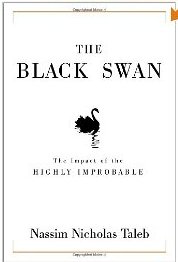February 28th, 2011 by EvanFalchukJD in Health Policy, Opinion, True Stories
No Comments »

 Media reports on misdiagnosis continue to mount. A recent study on patients with Alzheimer’s found that half had been misdiagnosed. Half.
Media reports on misdiagnosis continue to mount. A recent study on patients with Alzheimer’s found that half had been misdiagnosed. Half.
Another headline blared “4 out of 10 patients being misdiagnosed.” The article encouraged patients to “see another doctor” if they are worried about their diagnosis.
You know what it makes me think about? Starbucks. Why? Because the way Starbucks revolutionized coffee drinking shows a way forward for healthcare.
Starbucks realized that since our lives focus on two places — home and work — most of us don’t have a “third place” to go. A place where we can be free of everyday distractions and take care of ourselves. Starbucks set out to create that “third place” by making its shops comfortable, inviting places. It works. “Third place” makes customers’ lives better — and Starbucks has almost 20,000 shops to prove it.
It’s time for a kind of “third place” in healthcare. Healthcare focuses on two places, too: The doctor’s office and the hospital. Both places are difficult for patients. Patients complain of not getting enough time from their overworked doctors, and studies of things that go wrong in hospitals are equally disturbing.
There really isn’t a “third place” to go to in healthcare. Somewhere that you can step outside of the difficult process of being sick. Somewhere you can get a quiet, clear perspective of what is going on.
Now, some people are lucky and can turn to relatives or friends who are doctors to provide some of that “third place” experience. But most people can’t. At Best Doctors, we’re creating the experience of a healthcare “third place.” We do it by taking the time to review each case, have doctors think about what’s happening, consult with experts, and share advice. Read more »
*This blog post was originally published at See First Blog*
February 20th, 2011 by LouiseHBatzPatientSafetyFoundation in Opinion, True Stories
No Comments »

This is a guest post by J. Paul Curry, M.D.
I was inspired when I lost my best friend 15 years ago to a common medical-error phenomenon: The lack of monitoring patients in the hospital.
Losing Mark altered my entire career in medicine and started me on a long journey of trying to understand how this particular problem happens. The journey has been eye-opening for me for many reasons, and probably most importantly by striving to learn and understand how the human brain can deceive itself into believing that thoughtful, rational, goal-directed tactics are always the solution to finding the answers to highly-complex enigmas.
 Actually, the blockbusting solutions that change the course of our culture — how we do things — are most often totally unpredictable and discovered by accident by disruptive innovators, such as Dr. Larry Lynn of the Sleep and Breathing Research Institute, willing to tinker on their own and against the grain of thousands of smart people who dismiss this kind of outlier work as fantasy. To get just how often this happens and why, I’d invite those unfamiliar with Nassim Nicholas Taleb’s work to read “The Black Swan : The Impact of the Highly Improbable” and other books of his. This is what we’re up against today.
Actually, the blockbusting solutions that change the course of our culture — how we do things — are most often totally unpredictable and discovered by accident by disruptive innovators, such as Dr. Larry Lynn of the Sleep and Breathing Research Institute, willing to tinker on their own and against the grain of thousands of smart people who dismiss this kind of outlier work as fantasy. To get just how often this happens and why, I’d invite those unfamiliar with Nassim Nicholas Taleb’s work to read “The Black Swan : The Impact of the Highly Improbable” and other books of his. This is what we’re up against today.
I was recently operated on, having a significant multi-level back surgery at one of the outstanding university spine programs in the country, supported by one of the elite anesthesia programs. I was told by the resident that I’d be going to the general care floor following my surgery, where I’d be checked on regularly. This was a given because I’m a fitness fanatic, but the resident wasn’t prepared for my followup questions. As I probed for more detail, it became apparent that no one in the organization had any inkling that nursing checks only occurring every four or eight hours on a patient fresh from surgery with patient-controlled narcotics was less than standard of care.
I told them I have mild sleep apnea and wanted pulse oximetry at minimum. I had to be upgraded to telemetry to get it. What’s more interesting is that there was so little understanding of this problem that they put me on pulse oximetry in a room where the only one who could watch it was me — the patient. Read more »
January 18th, 2011 by KevinMD in Opinion, Research
No Comments »

I wrote last year in USA Today about the impact of physician burnout. Not only do doctors suffer, but so do their patients.
Burnout starts early in residency, with entering interns having a depression rate of 4 percent, similar to the general public. But after the first year of residency, that number balloons to 25 percent.
Now another study adds fuel to this disturbing trend. A paper published in the Archives of General Surgery looks at the prevalence of physician burnout in surgeons:
In a national survey, one in 16 surgeons reported contemplating suicide, researchers reported.
An increased risk of suicidal ideation was linked to three factors: depression, burnout, and the perception of having made a recent major medical error …
… But only about one in four of those who reported thinking about taking their own lives sought psychiatric or psychologic help.
The rate of suicidal ideation in surgeons, at 6.3 percent, was almost double of that in the general population (3.3 percent).
Physician burnout is a phenomenon that’s often ignored. The practice environment is deteriorating, with increasing time pressures and worsening bureaucratic burdens. Little of this is addressed in the national health conversation, or in the recently passed health reform law. Read more »
*This blog post was originally published at KevinMD.com*
January 16th, 2011 by DavedeBronkart in Health Policy, Opinion
No Comments »

From the Medscape Medical Ethics article entitled “‘Some Worms Are Best Left In The Can’: Should You Hide Medical Errors?“:
Consequences aside, from a strictly ethical perspective, if a patient doesn’t realize that his physician made a mistake, should the physician fess up?
Before you jump to conclusions (as I did), look at the article’s three parts. It’s about a survey. The title is on the inflammatory side; the article is a window into physicians’ views. The introduction continues:
Evidence of the complex prisms through which physicians view these issues was apparent in the replies to four questions asked in Medscape’s exclusive ethics survey. More than 10,000 physicians responded to the survey in 2010.
Subheads:
— Mistakes that don’t harm patients. “Are there times when it’s acceptable to cover up or avoid revealing a mistake if that mistake would not cause harm to the patient?” Sixty percent said “no;” the others split between “yes” and “it depends.”
- I personally can understand this note from a survey respondent: “If there is a mistake that would have no medical effect but would cause extreme, uncalled-for anxiety, then yes,” especially since I know people (some elders, some young) who would indeed freak out, out of proportion. But, that’s a big judgment call.
- I have a harder time accepting this comment: “Why shake the patient’s trust in the doctor for something that is irrelevant?” Irrelevant is a big judgment call, and I’d be really concerned about the natural human tendency to minimize the probable impact of a mistake — especially if a provider thinks it’s all about maintaining a patient’s trust, even when the topic is their own error.
— Mistakes that might harm patients. Ninety five percent said “no;” some still said “yes!” One commented: “If the mistake has not progressed to harmfulness, then it’s essentially a non-issue. Treatment correction takes place and you move on.” Another says if there hasn’t been harm yet, “I think a ‘wait and see’ approach is okay.” Read more »
*This blog post was originally published at e-Patients.net*
January 10th, 2011 by KevinMD in Better Health Network, Opinion
1 Comment »

In a recent New England Journal of Medicine, a perspective piece on what to do with fatigued surgeons is generating debate. The issue of work-hour restrictions has been a controversial issue when it comes to doctors in training, something that I wrote about earlier in the year in USA Today. But once doctors graduate and practice in the real world, there are no rules.
As summarized in the WSJ’s Health Blog, the perspective piece argues for more regulation for tired surgeons:
… self-regulation is not sufficient. Instead, “we recommend that institutions implement policies to minimize the likelihood of sleep deprivation before a clinician performs elective surgery and to facilitate priority rescheduling of elective procedures when a clinician is sleep-deprived,” they write. For example, elective procedures wouldn’t be scheduled for the day after a physician is due to be on all-night call.
And the authors suggest that patients be “empowered to inquire about the amount of sleep their clinicians have had the night before such procedures.”
It’s a noble goal, and indeed, data does show that fatigued surgeons tend to make more errors. Patients, once confronted with a choice of being operated on by a tired surgeon, may choose to postpone surgery. Read more »
*This blog post was originally published at KevinMD.com*
Media reports on misdiagnosis continue to mount. A recent study on patients with Alzheimer’s found that half had been misdiagnosed. Half.















